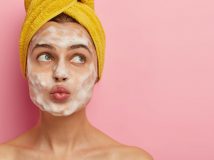
It’s the peak time of the year for anti-wrinkle injections, with bookings increasing by as much as 20-25 per cent in the run-up to Christmas. Last year, the Harley Medical Group reported a 150 per cent surge in women having injections in the first two weeks of December. This doesn’t come as a surprise, with many patients wanting to look youthful and plump during their holiday festivities.
Cosmetic specialist, Dr Michael Prager said, “Many of my clients are coming in not for wrinkle-smoothing, but to look happier – especially during the party season.” This begs to question, the emotions attached with the injections and whether happiness is one of them. The Aesthetics Journal published research stating that nine out of ten patients with major depressive disorder showed a reduction in symptoms when treated with botulinum toxin (botox).
If someone frowns less after treatment, does that necessarily mean they are less sad? Dr Richard Sherry explains, “If you appear sad and stressed, it creates negative feedback from those who come in contact with you.” In essence, our appearance (frown lines or not), affects how others perceive us.
It’s important to realise however, that while anti-wrinkle injections may assist in uplifting your self esteem, making genuine changes to your attitudes and beliefs, is the key to long-lasting happiness.
Visit the anti-wrinkle injections information page on Cosmedic Central to make an educated decision, before proceeding with treatment.
This article was provided by Cosmedic Central, Australia’s leading cosmedic information source.






















